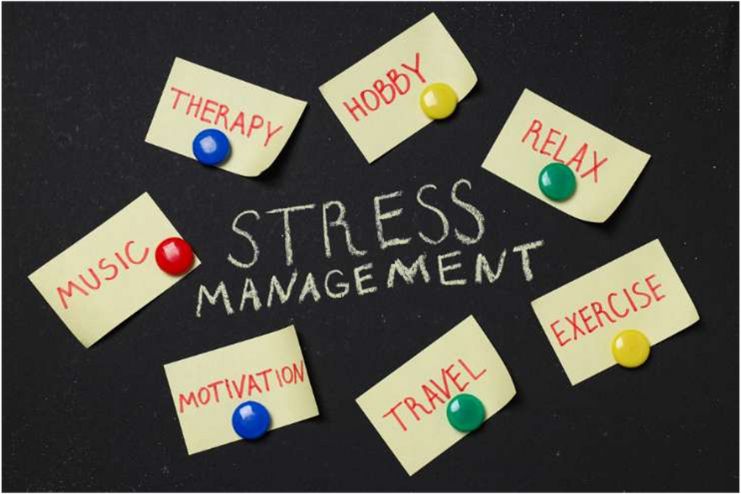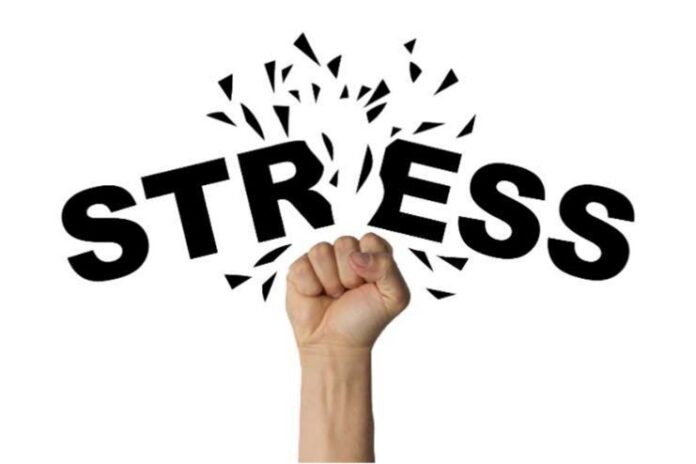Affiliate Disclaimer
Some links in this article are affiliate links. We may earn a small commission if you make a purchase through these links, at no extra cost to you. We only recommend products we find useful to our readersStress is a force that can quietly but significantly affect our heart health, and there’s no denying the link between cardiovascular health and mental stress. When stress persists, it causes a series of physical alterations in the body that impair the heart’s capacity to work at its best.
Long-term stress raises blood pressure, causes inflammation, and throws off the balance of essential hormones, placing unnecessary strain on the heart.
Understanding the significance of stress management is a critical first step in protecting the heart’s health. Through proactive stress-reduction techniques, we may safeguard our psychological and physical health.
Understanding the Impact of Stress on Heart Health

Stress is a natural response to challenges, but when it becomes chronic, it can have significant consequences for heart health. Stress activates the “fight or flight” response, releasing hormones like adrenaline and cortisol. While this is helpful in short bursts, prolonged stress leads to harmful effects on the cardiovascular system.
Cortisol and Heart Health
Cortisol, known as the “stress hormone,” plays a key role in regulating bodily functions. However, chronic stress elevates cortisol levels, which can:
- Increase blood pressure: Elevated cortisol causes blood vessels to constrict, raising blood pressure and putting strain on the heart and arteries, which increases the risk of hypertension and heart disease.
- Raise blood sugar and cholesterol: Prolonged stress can elevate blood sugar, triglycerides, and LDL cholesterol, all of which contribute to plaque buildup in arteries, a leading cause of heart disease and stroke.
- Promote inflammation: Chronic stress leads to persistent inflammation in the body, damaging blood vessels and accelerating the development of atherosclerosis (narrowing of the arteries).
Long-Term Effects of Chronic Stress
Over time, the effects of chronic stress can become more severe. Constant elevation of heart rate, blood pressure, and inflammation can strain the heart, increasing the risk of arrhythmias, heart attacks, and stroke. Stress can also disrupt the balance of the autonomic nervous system, heightening the body’s stress response and further impacting cardiovascular health.
According to Yale Medicine cardiologist Rachel Lampert, MD, “Stress is sometimes underrecognized as a risk factor for heart disease.” According to experts, stress is a significant risk factor for heart disease, which is the top cause of death in the United States.
In summary, chronic stress plays a significant role in heart disease risk. Managing stress through healthy habits like exercise, mindfulness, and sleep can help protect heart health and prevent long-term damage.
Stress Management Techniques for a Healthy Heart

Stress is a natural part of life, from minor difficulties to big emergencies. Though you can’t always manage these situations, you do have some control over how you react to them.
Effective stress relievers that may soothe your body and mind are therefore crucial. These easy methods could help you manage your stress and improve your heart health:
Engage in Meditation:
Meditation provides both immediate and long-term stress management advantages. There are numerous meditation techniques to try, such as guided or self-led meditation, mindfulness, and breathing exercises.
As you take deep, slow breaths, you could repeat an affirmation or mantra. Another option is to spend a few minutes engaging in mindfulness exercises, which entail staying present and rooted in the moment.
Try Progressive Muscle Relaxation:
Progressive muscle relaxation involves relaxing each muscle in your body one at a time. You begin by taking a few deep breaths. Then, practice tensing and relaxing each muscle group, working your way down to your toes from your forehead. As you gain experience in identifying muscle tension and tightness, you’ll be able to relax more readily.
Pay Attention to Your Breathing:
Simply paying attention to or altering your breathing can significantly reduce your total stress level. In just a few minutes, breathing methods can help you relax physically and mentally.
The good thing is that nobody knows you’re performing them. Therefore, breathing techniques may be essential to lowering stress levels, whether in a tense conference or a packed theater.
Try Aromatherapy:
Aromatherapy is a great way to reduce stress. It can make you feel more alert and calm in the present moment. According to research, some scents like lavender, jasmine, rose, or chamomile may change brain wave activity and lower the body’s stress chemicals.
Make Time for Recreational Activities:
Outdoor activities can be a great way to decompress. However, many people believe that their lives are too hectic for extracurricular activities, games, or hobbies.
Including leisure time in your schedule may be essential to feeling your best. Additionally, you’ll perform better when you’re feeling better, so relaxing could help you work more productively.
Lifestyle Changes for Stress Management

Stress is intricately linked to your way of life. A lifestyle change is frequently the greatest, longest-lasting way to manage stress and safeguard your heart effectively. Addressing daily routines and adopting healthy coping strategies can lay the groundwork for long-lasting resilience and balance.
Educate for Yourself:
Learning about your illness is one method to recover control after receiving a diagnosis of depression or a similar condition. You can accomplish this by reading books and articles about mental health, speaking with your doctors, or working with a therapist. A greater understanding of mental health disorders and their treatment will better equip you to recognize and manage your potential treatment choices.
Get Enough Sleep:
Getting enough sleep directly impacts your quality of life and physical and mental health. Establishing a regular sleep schedule is crucial since depression and related conditions can interfere with sleep. Limit screen time before bed, create a peaceful sleeping environment, and establish a regular bedtime ritual to help you reach your goal of 7 to 9 hours of good sleep.
Get Moving:
Regular activity, like walking, jogging, or playing sports, can improve your mood, distract you from your issues, and ease tension and stress. Exercise can also enhance your general health. Regular exercise for 30 minutes or longer will be most beneficial, but you can gradually increase the amount of time you spend exercising.
Steer Clear of Alcohol and Drugs:
To cope with or regulate emotions like stress, grief, or rage, people frequently turn to drugs or alcohol. Substance abuse, however, can exacerbate or cause anxiety or depression and make recovery far more complex.
Consume a Well-Rounded Diet:
An unhealthy diet can make you more sensitive to stress. Reaching for high-fat, high-sugar foods and engaging in emotional eating can temporarily reduce stress while increasing it over the longer term.
Cookies and potato chips are refined carbohydrates that raise blood sugar levels. When blood sugar sinks, you may feel more anxious and stressed.
A nutritious diet can reduce long-term stress. Walnuts, avocados, and eggs promote energy balance and mood control.
Seeking Professional Help and Support

Although stress is a natural and inevitable aspect of life, excessive stress can negatively affect mental and physical health. According to the American Psychological Association’s 2024 Stress in America poll, 77% of respondents cited the future of our country as a major source of stress in their lives, followed by the economy (73%) and the 2024 U.S. presidential election (69%).
Emotional support is an essential protective component for navigating life’s challenges. According to a 2022 study, social support increases resiliency under pressure.
Even while individual techniques can significantly lower stress, there are instances when the burden is too significant to handle on one’s own. Getting expert assistance during these times can have a profound impact. Unchecked stress can lead to many serious mental and physical health issues, so early intervention is essential.
Expert advice provides a customized method for comprehending and handling stress. Counselors and therapists offer a secure, accepting environment for working through the complexity of your problems. You can acquire the skills necessary to face obstacles with more resilience and self-assurance by using methods like group therapy sessions, mindfulness-based stress reduction (MBSR), or cognitive-behavioral therapy (CBT).
Conclusion
Stress is more than a passing feeling; it’s a quiet force that can influence your general and heart health. Finding peace is only one aspect of stress management; another is safeguarding life’s vital organs.
Every effort matters when it comes to lessening the adverse effects of stress on your cardiovascular system, from mindfulness and exercise to sleep and expert assistance. By including stress-reduction practices in your everyday routine, you can improve your mental clarity and strengthen your heart against the strain of life’s obstacles.
References
- https://www.yalemedicine.org/news/stress-affects-your-heart
- https://www.yalemedicine.org/specialists/rachel-lampert
- https://www.heart.org/en/healthy-living/healthy-lifestyle/stress-management/stress-and-heart-health
- https://www.helpguide.org/mental-health/stress/stress-management
- https://www.verywellmind.com/tips-to-reduce-stress-3145195
- https://mentalhealth.cornell.edu/self-care/stress-management-strategies
- https://www.heart.org/en/healthy-living/healthy-lifestyle/stress-management/3-tips-to-manage-stress
- https://www.verywellmind.com/stress-and-emotional-eating-how-to-stop-3144528
- https://my.clevelandclinic.org/health/articles/6392-stress-coping-with-lifes-stressors
- https://depressioncenter.org/outreach-education/depression-center-toolkit/want-stay-mentally-healthy/lifestyle-strategies-and
- https://www.apa.org/topics/stress/tips
- https://www.apa.org/topics/stress/manage-social-support
- https://www.apa.org/pubs/reports/stress-in-america/2024
- https://pubmed.ncbi.nlm.nih.gov/36240542
- https://www.urmc.rochester.edu/encyclopedia/content?ContentTypeID=1&ContentID=2171
- https://www.heart.org/en/news/2020/02/04/chronic-stress-can-cause-heart-trouble
In this Article

















